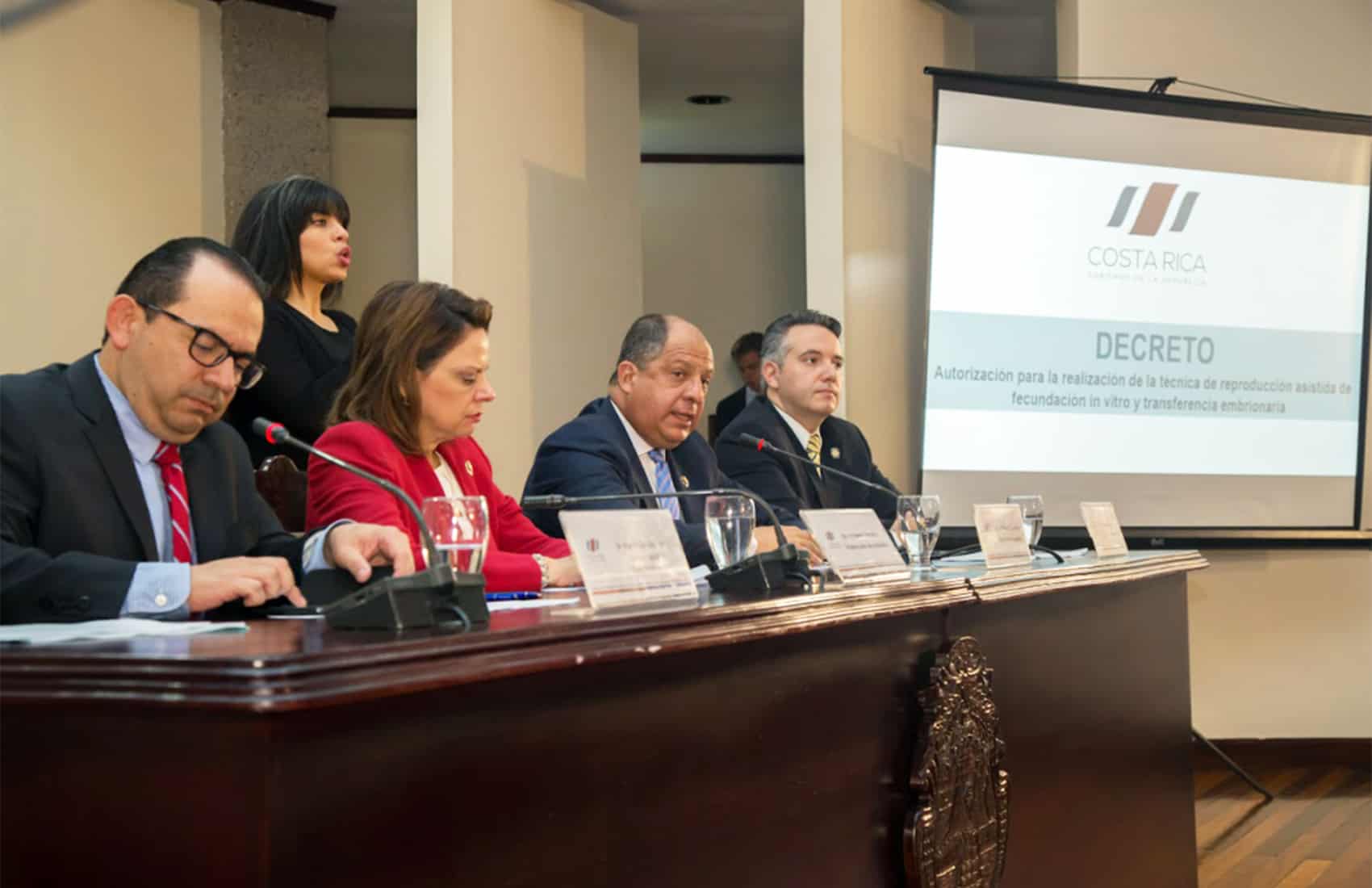Six plaintiffs are asking Costa Rica’s Constitutional Chamber of the Supreme Court, or Sala IV, to throw out a constitutionality challenge to an executive decree that would legalize in vitro fertilization (IVF) in Costa Rica.
The Ombudsman’s Office, Fundación Déjame Vivir en Paz, the Center for Justice and International Law, the Doctors and Surgeons Association, the National Women’s Institute, and Boris Molina, a lawyer representing couples who filed a petition at the Inter-American Court of Human Rights (IACHR), each submitted requests asking Sala IV justices to dismiss a claim filed by lawmakers from four parties in October.
In a 4-3 vote in October, Sala IV justices agreed to temporarily suspend the process to reinstate IVF procedures pending a final ruling on the lawmakers’ complaint, which argues that IVF can only be regulated by law and not by decree.
President Luis Guillermo Solís on Sept. 11 signed a decree to legalize IVF in Costa Rica, where it was banned in 2000 by a Sala IV ruling. Solís’ decree was an effort to come into compliance with an IACHR ruling in 2012, which on Saturday, Nov. 28 marked its three-year anniversary.
The president’s order establishes a six-month deadline for the Health Ministry to outline all technical rules and protocols for transferring eggs, and asks the Social Security System to restart assisted fertilization procedures within the next two years.
The San José-based human rights court sent two separate requests on Sept. 25 and Oct. 9 asking Costa Rica’s government to explain its advances in legalizing and offering IVF services, and the country’s efforts to pass legislation to regulate it.
The government on Oct. 15 submitted a report highlighting that the Solís decree brought Costa Rica into compliance with the court’s orders. The response also stated that both the Social Security System and the Public Health Ministry are working on outlining technical procedures for reinstating IVF.
Sala IV justices do not have a deadline to issue a ruling on the lawmakers’ complaint.






